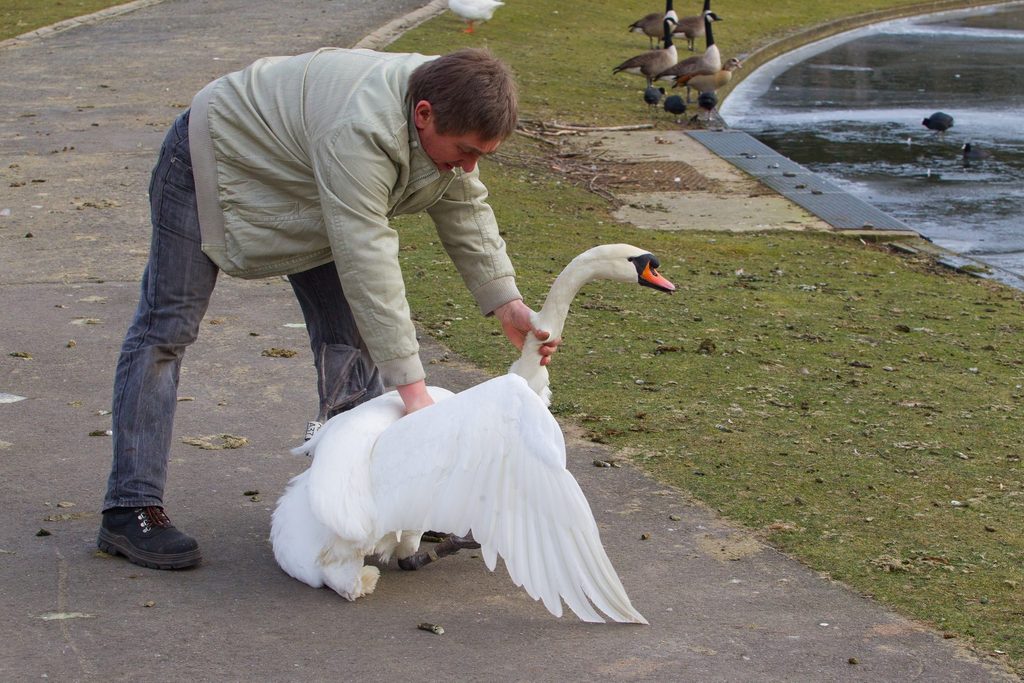Swan numbers are dropping in Brussels and without any obvious environmental factors to point to, experts are questioning whether their disappearance is not a result of human wrongdoing.
The number of mute swans (the most common white swans that are found in ponds and lakes across Belgium) has been falling for more than six years in the capital, Brussels Environment reports. The organisation counted just 34 in 2022.
However, no ecological reason has been found for the decline. On the contrary, most other bird species living on the city's waters are doing well. But swans are becoming rarer every year though no carcasses have been found, no diseases detected among their kind and no animals migrating further afield.
Mario Ninanne, ornithologist and administrator at the Royal League for the Protection of Birds, told La Dernière Heure that he is certain these disappearances are the result of human interference; namely, that people are kidnapping swans from Brussels ponds either to breed them or to eat them.
Luring swans
Ninanne has told of reports from people living near certain ponds that the disappearances are due to people of low income who are poaching swans to eat them. Traps have been found in Anderlecht and in Watermael-Boitsfort, as well as to the west of Brussels leading some local authorities to alert the police.
"Around the ponds at Marius Renard in Anderlecht, we saw people feeding swans to gradually get them used to their presence. The animals followed them everywhere because they were being fed. Then the swans disappeared," said Julien Lacave, a police officer in the Brussels-Midi area.
"We've never caught anyone red-handed but we know that this kind of poaching goes on elsewhere in Belgium and Europe. A swan is still free food."
People are not only interested in fully grown animals but also in their eggs and their young. In Watermael-Boitsfort, an entire litter has disappeared, while the eggs are stolen for breeding or for eating.
Related News
- 'Excessively full': Belgian animal shelters sound the alarm
- Ancient whale discovered in Peru could be heaviest animal known to history
- Antwerp tries shock attack against invasive weed
Police have therefore started increasing patrols around the ponds between 06:00 in the morning and 15:00 in the afternoon, while preventive patrols are also being carried out. "These seem to have had an impact as we haven't seen any more disappearances since then, but that only serves to displace the problem," Lacave said, adding that other animal species are also affected in Brussels.
"We've had reports of poaching of game and hedgehogs in the Forêt de Soignes. For some people, these are the delicacies of choice."

